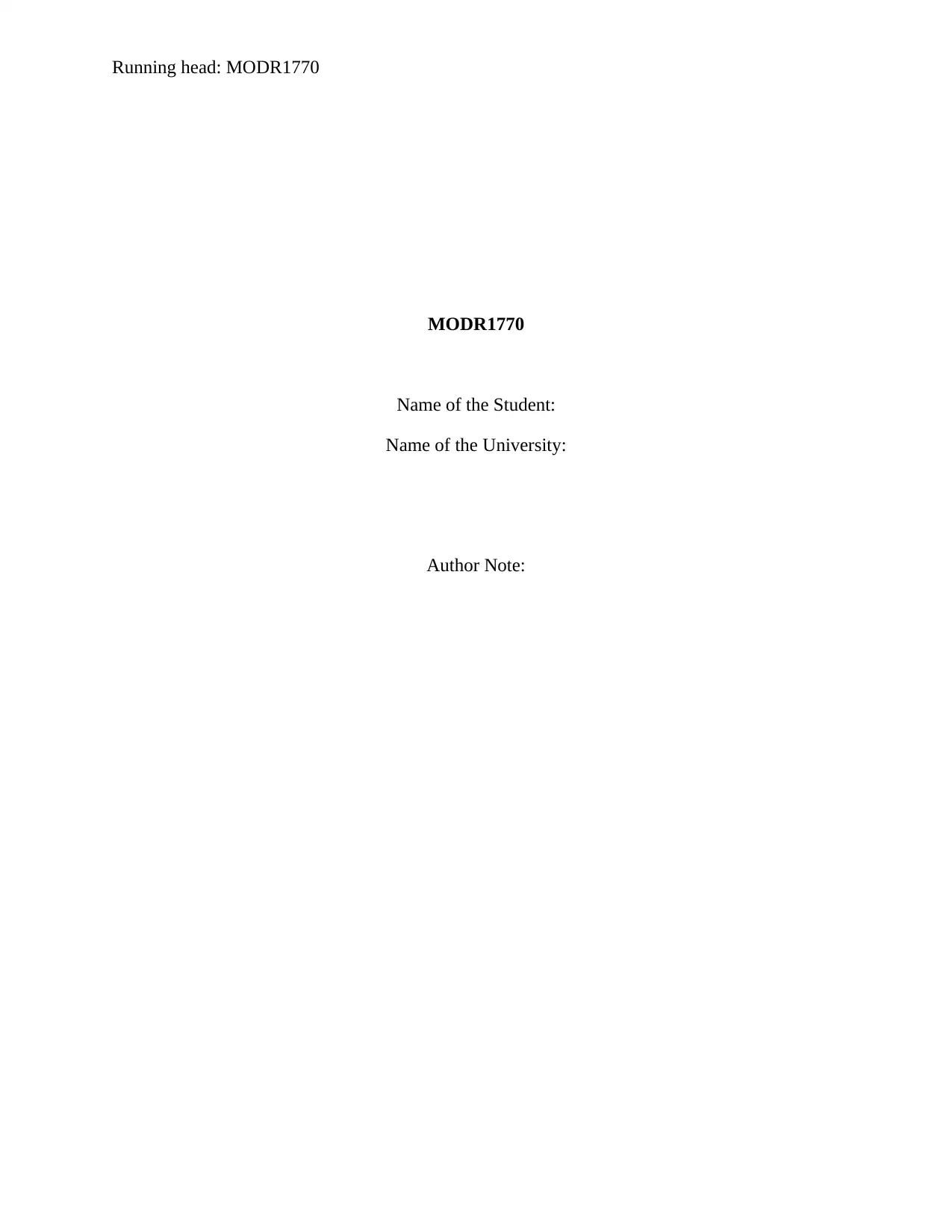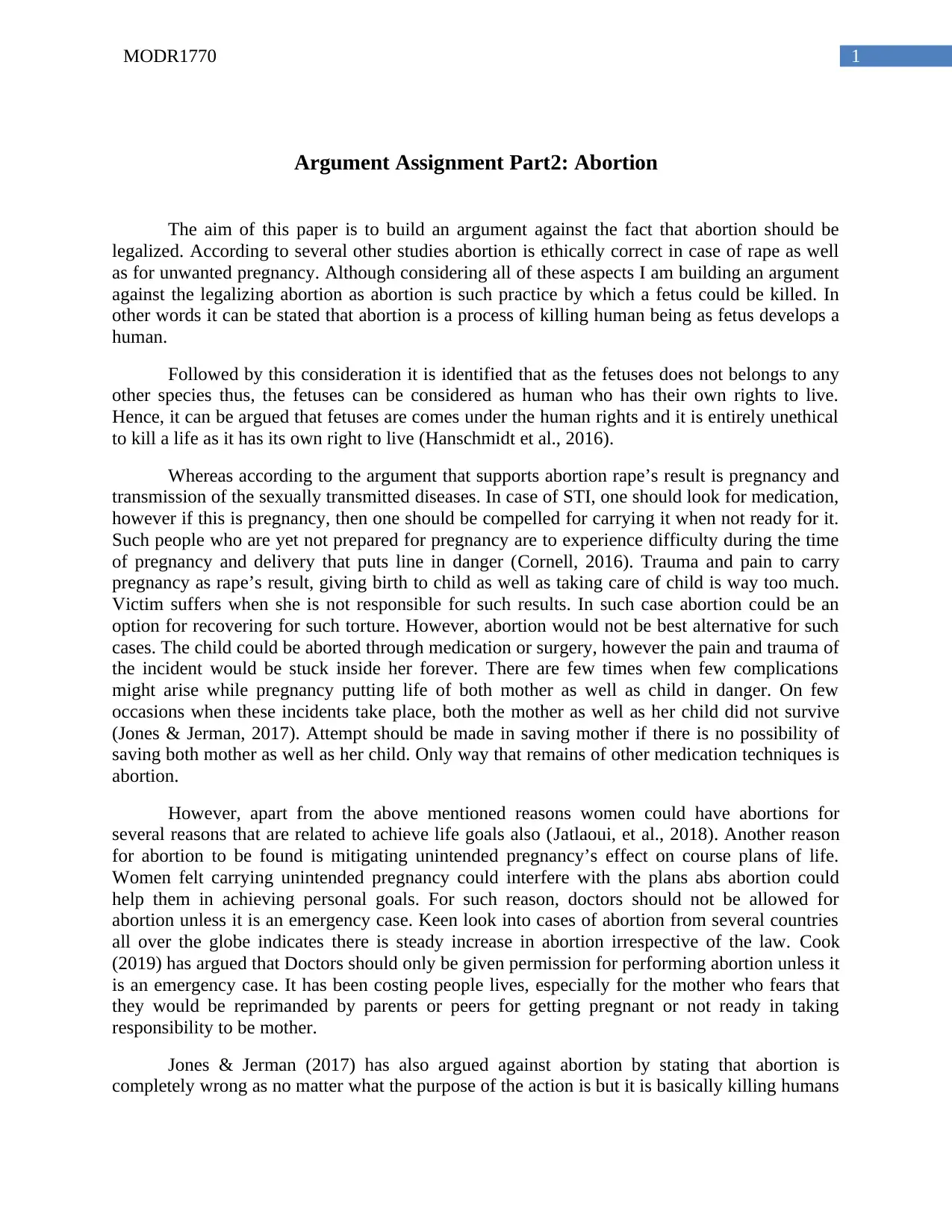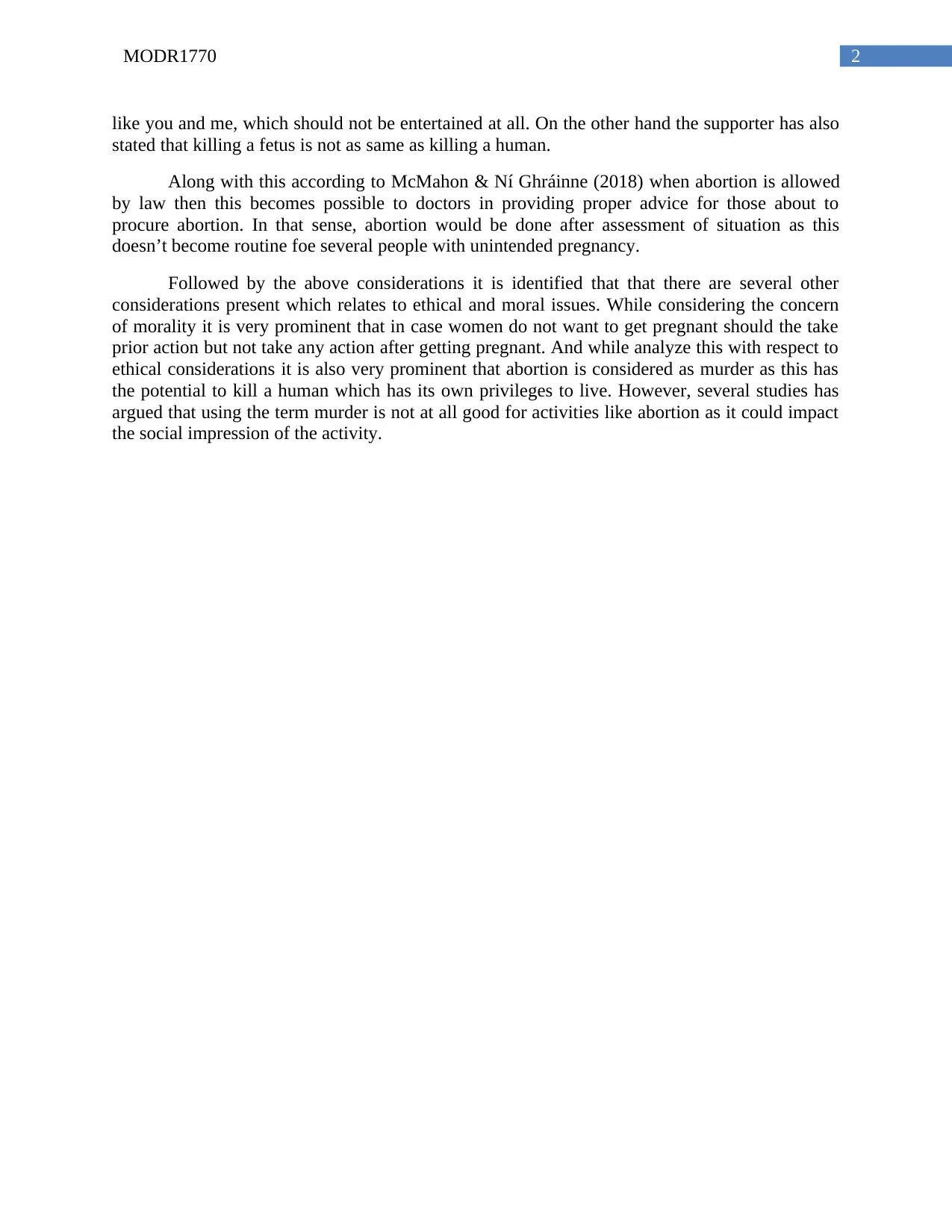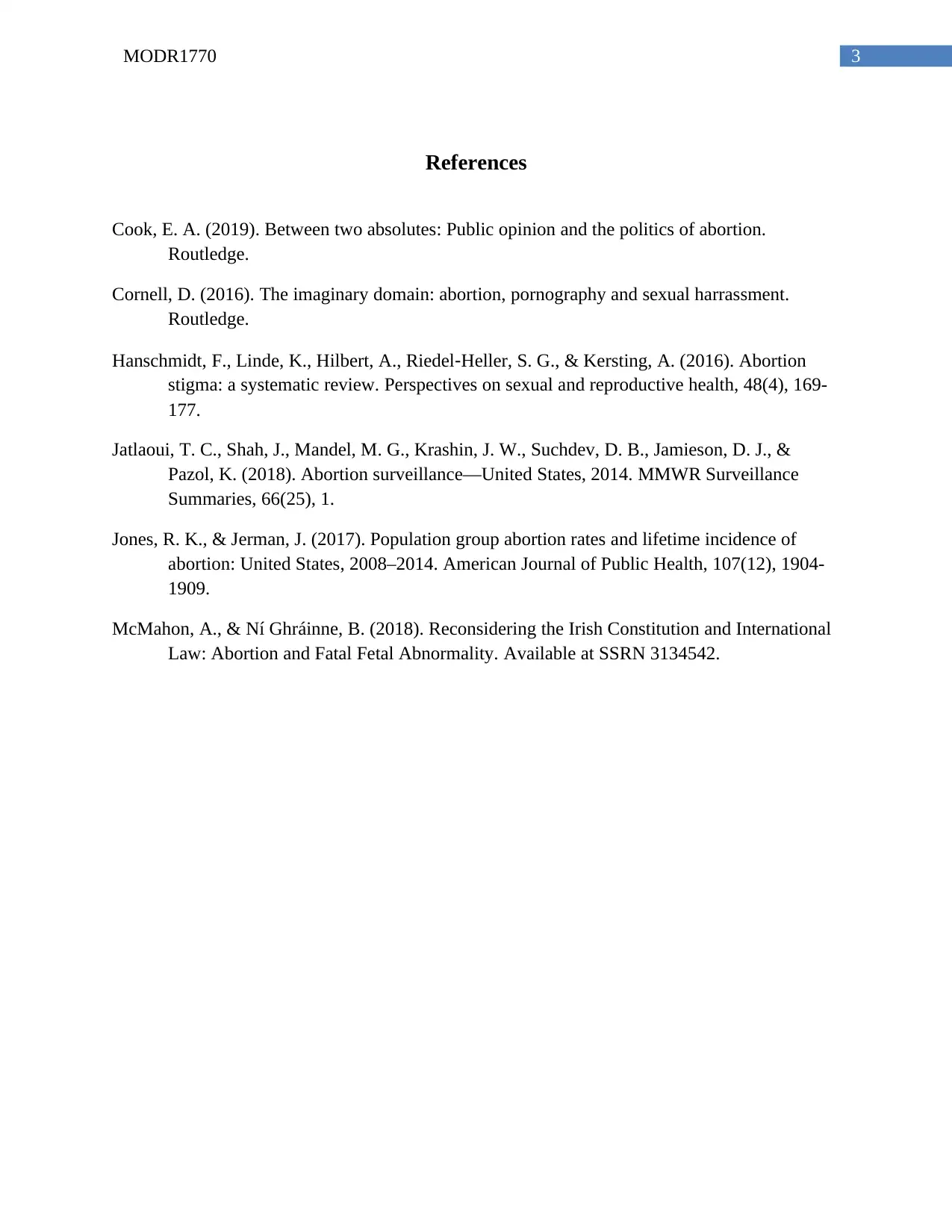University Argument Assignment: Part 2 - Against Legalized Abortion
VerifiedAdded on 2022/08/24
|4
|1097
|12
Homework Assignment
AI Summary
This assignment presents a student's argument against the legalization of abortion, focusing on the ethical implications of terminating a pregnancy. The paper contends that abortion is morally wrong because it involves the killing of a fetus, which, as a human being, has a right to life. The argument acknowledges scenarios like rape and unwanted pregnancies but maintains that abortion is not the best solution, emphasizing the potential trauma and psychological impact on the individual. The paper also discusses the importance of doctors not being allowed to perform abortions unless it is an emergency case. It references various studies and sources to support the argument. The author highlights the importance of considering the ethical and moral dimensions of abortion, underscoring the need for prior actions to prevent unwanted pregnancies and the potential impact of abortion on the social perception of the act. The paper concludes by reiterating the moral wrongness of abortion, while acknowledging the complexities of the issue.
1 out of 4











![[object Object]](/_next/static/media/star-bottom.7253800d.svg)